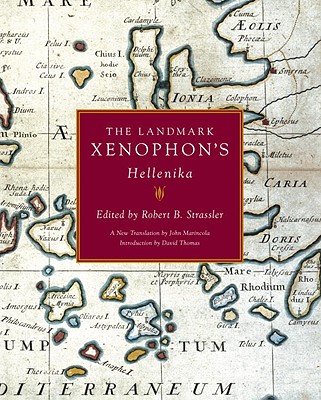Adding to the Towering Antilibrary Pile
Thursday, December 31st, 2009
The Landmark Xenophon’s Hellenika by Xenophon. Edited by Robert Strassler
Strassler’s “Landmark” series are gems. After enjoying this year’s Xenophon Roundtable at Chicago Boyz, I was glad to see Hellenika newly released. A little pricey though in hardcover.
I am adding more books to my Antilibrary, keeping in the spirit of Nassim Nicholas Taleb, from his book The Black Swan: The Impact of the Highly Improbable:
….The writer Umberto Eco belongs to that small class of scholars who are encyclopedic, insightful, and nondull. he is the owner of a large personal library ( containing thirty thousand books), and separates vistors into two categories: those who react with ‘Wow! Signore professore dottore Eco, what a library you have! How many of these books have you read?’ and others – a very small minority- who get the point that a private library is not an ego boosting appendage but a research tool. Read books are far less valuable than unread ones. The library should contain as much of what you do not know as your financial means, mortgage rates, and the currently tight real estate market allow you to put there. You wil accumulate more knowledge and more books as you grow older, and the growing number of unread books on the shelves will look at you menacingly. Indeed, the more you know, the larger the rows of unread books. Let us call the collection of unread books an antilibrary.
While the real estate markets are no longer “tight”, the substance still applies. Here’s what else I just picked up:




After the Ice: A Global Human History 20,000-5000 BC by Steven Mithen
Panzer Leader by General Heinz Guderian
Iron Kingdom: The Rise and Downfall of Prussia, 1600-1947 by Christopher Clark
Strategy by B.H. Liddell Hart
Power, Faith, and Fantasy: America in the Middle East, 1776 to the Present by Michael Oren
The Bitter Road to Freedom: A New History of the Liberation of Europe by Wiliam Hitchcock
This last was an Xmas gift from my scientific amigo, Dr. Von





